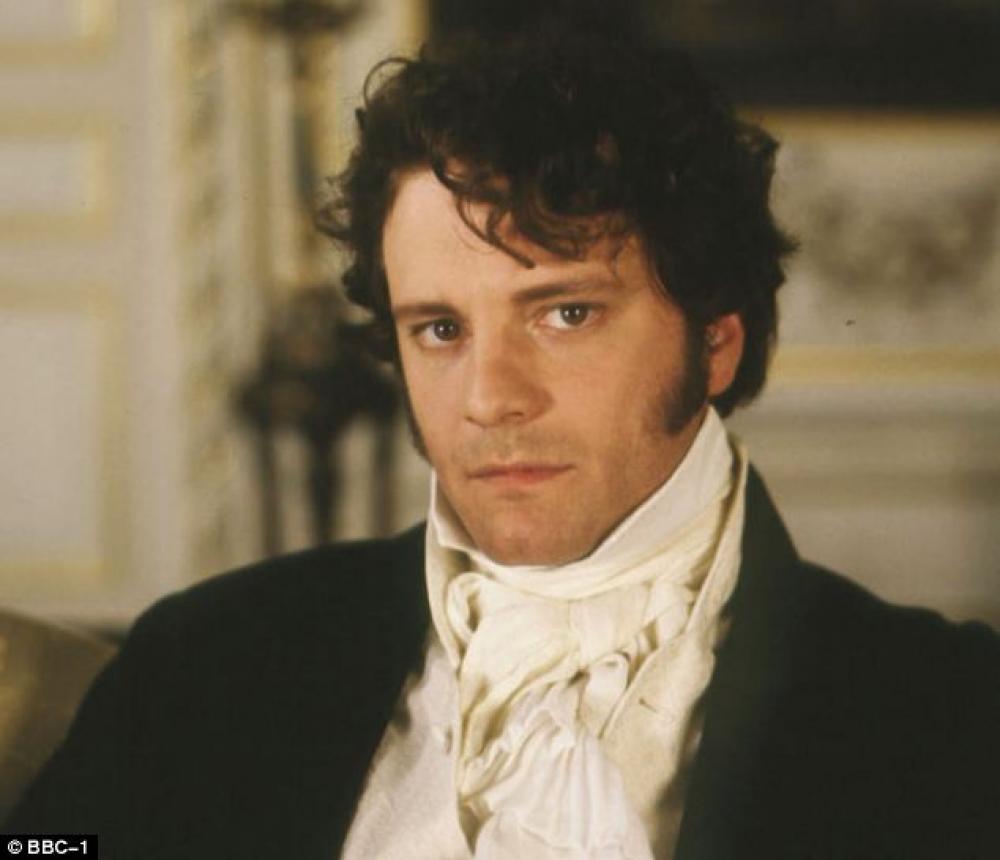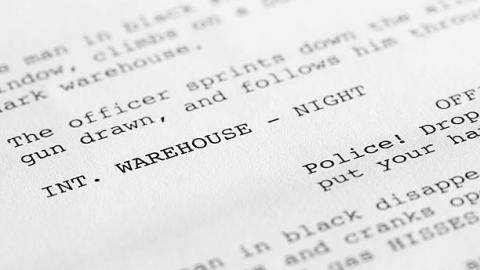Why Matthew Macfadyen Made a Better Mr. Darcy than Colin Firth
Share with friends

By Shaina Ghuraya
With the anticipated October 26th premiere of Death Comes to Pemberley, a new BBC show that depicts a murder mystery taking place six years after the events of Pride and Prejudice, the buzz over whether Matthew Rhys will do Mr. Darcy justice has reached fever pitch. The consensus, even from Rhys himself, is that no one can match Colin Firth’s performance in the 1995 BBC miniseries version of Prejudice.
Yet the Firth performance, as iconic and career-defining as it was, may not be all its cracked up to be. In fact, Matthew Macfadyen’s performance in the 2005's film version of Pride and Prejudice may be superior to Firth’s.
Firth in the 1995 version of Pride & Prejudice
Before I incur the wrath of the thousands, dare I say millions, of Firth-Darcy fans, I would like to note that I am not condemning Firth’s performance. Rather, I am just stating that his portrayal of Mr. Darcy was not quite as accurate as Matthew Macfadyen’s when compared to the novel.
In case you are unaware of the hype surrounding Pride and Prejudice and by extension Mr. Darcy, allow me to enlighten you. Pride and Prejudice, written by Jane Austen is set in the 1800s in England and is about a strong-willed young girl (Elizabeth AKA Lizzy) whose mother seeks to get her and her four other sisters married off before their father dies and leaves them homeless. But Lizzy is outspoken and does not think that there could be a man out there for her, until she meets Mr. Darcy, a man of extremely high status who upon first impressions seems proud and arrogant. By the end (spoilers ahead) she discovers how she misjudged his character and falls in love with him, which results in their marriage. That’s the novel in a nutshell.
Countless actors have tried to bring Mr. Darcy to life, two of whom are Colin Firth and Matthew Macfadyen. Cool, brooding, sexy-all adjectives that have been used by countless Firth-Darcy fans to describe his performance. These are all accurate in describing Firth, but less so in describing the Mr. Darcy Jane Austen wrote. Part of what makes Mr. Darcy such an endearing character is that he really is none of those things. Sure he is proud, arrogant, and definitely handsome, but he is also shy, socially inept, and awkward.
From Lizzy’s first impressions of Mr. Darcy in the novel, we get the sense that Mr. Darcy is arrogant, and we feel this way for quite a long time until we realize that Lizzy is wrong, or rather, Lizzy realizes she is wrong. One line in particular clears up the reason for Mr. Darcy’s anti-social behavior as he tries to explain to Elizabeth, “I certainly do not have the talent which some people possess . . . of conversing easily with those I have never seen before. I cannot catch their tone of conversation, or appear interested in their concerns, as I often see done” (pg 171). The bottom line is that Darcy is an introvert.
While Firth does to an extent portray Darcy's introvertedness, it is not nearly as socially awkward as Macfadyen’s portrayal. In the 2005 version of Pride and Prejudice, there is a disconnect between Macfadyen-Darcy’s pride and his actual character - as if arrogance does not quite match his nature. As he stands in the rain professing his love for Lizzy, and how he had to fight against his “better judgement” his “family’s expectations, the inferiority of [her] birth by rank and circumstance,” we get the sense that those are not his words after all, but rather the words society instilled in him. He says it so matter-of-fact, like a child repeating something his parents told him, and Lizzy’s harsh rejection is like a rude awakening to the world where he learns that not everything his parents’ told him is right.
Macfayden in the 2005 version of Pride & Prejudice
At the end of the novel, it is revealed that Mr. Darcy was indeed taught the importance of his status by his parents, and would not have questioned these beliefs had Lizzy not come into his life. And that is where the problem lies in Firth-Darcy’s performance. His pride and arrogance do not seem out of place, instead, they seem to fit his character a little too well, as if it is his true nature. His character is just a bit too confident and a bit too self-assured, mirroring Lizzy’s strong-willed pride rather than Mr. Darcy’s learned one.
The other shortcoming of Firth-Darcy is his character's too-stark transformation after he takes that iconic dip in the lake. I understand the symbolism of that scene, how he is being born anew so to speak, but when conversing with the Gardners he is quite the extrovert, and all signs of awkwardness have vanished. Compare this to Macfadyen-Darcy’s meeting with the Gardners, an earnest effort to show Lizzy that he is trying to become less socially inept, but still quite awkward. Firth-Darcy’s transformation is too complete, too perfect.
Fast forward to the scene where Firth-Darcy finds Lizzy grief stricken after reading the news of her sister’s elopement, and there is a huge discrepancy between how Austen’s Mr. Darcy would act and how Firth-Darcy acts. In the novel, Mr. Darcy offers her assistance, and does not leave her side after seeing how upset she is, but other than that he just paces about the room in typical awkward-Darcy fashion. Firth-Darcy takes this a step up. He proceeds to lead Lizzy to her seat, help her sit down, and then sit next to her, leaning in to express his concern . . . before standing up and pacing. In that moment he is so in tune with her feelings and the proper social protocol for comforting-the-girl-you-are-trying-to-woo that I thought I was seeing a completely different person. Macfadyen-Darcy on the other hand plays the whole scene very subtle, pacing and then finally coming to a standstill in the background as Lizzy relays the situation to him and the Gardners (the scene is different from the novel in that it is not just Lizzy and Mr. Darcy alone). He then sincerely offers his help to her while also playing up the “I’m so sorry I want to say more but I don’t know how” puppy-dog expression.
Perhaps why I find Macfadyen-Darcy’s portrayal so much more amazing is that he only had 127 minutes to convey all the complexities of Mr. Darcy, and he accomplished it more accurately than Firth-Darcy, who had a whole miniseries (six 50 minute episodes) to convince us. With Death Comes to Pemberley airing as a two part (90 minutes each) miniseries, it will be interesting to see how Matthew Rhys measures up. Will we see a continuation of the suave Firth-Darcy, or a more accurate though less sexy Macfadyen-Darcy? Or a totally fresh Rhys-Darcy?






